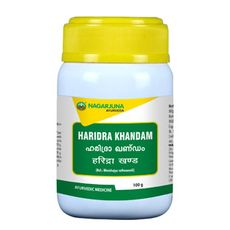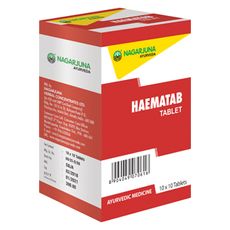 Where should we deliver your order?
Where should we deliver your order?Panchakarma Therapy: Your Roadmap to Wellness in Noida

Ayurveda, an ancient system of traditional medicine with origins dating back over 5,000 years in India, stands as a beacon of balance and vitality. Derived from the Sanskrit words "Ayus" (life) and "Veda" (knowledge), Ayurveda seeks to harmonise the body, mind, and spirit to achieve optimal health and well-being.
Foundation of Ayurveda
- Doshas: At the core of Ayurveda are the doshas – Vata (air and ether), Pitta (fire and water), and Kapha (earth and water). These biological energies govern an individual's physiological and psychological functions, and each person possesses a unique doshic constitution.
- Prakriti: Prakriti is one’s unique constitution, determined by the dominant doshas at birth. Understanding Prakriti is crucial for customising lifestyle and dietary choices to maintain balance and prevent illnesses.
- Dhatus: Ayurveda identifies seven fundamental bodily tissues, known as Dhatus – plasma, blood, muscle, fat, bone, bone marrow, and reproductive tissue. The nourishment and proper functioning of these tissues are pivotal for overall health.
- Malas: Malas refers to waste products generated during metabolic processes, including urine, faeces, and sweat. Ensuring their effective elimination is vital for maintaining health.
A Guide to Panchakarma Treatment and Its Benefits
At the heart of Ayurveda's rejuvenating therapies lies Panchakarma, a comprehensive detoxification and rejuvenation regimen designed to purify the body and restore doshic balance (Vata, Pitta, and Kapha). Panchakarma consists of five key treatments, each targeting specific areas of the body and offering unique health benefits, such as:

1. Vamana (Therapeutic Vomiting)
Vamana involves controlled therapeutic vomiting to eliminate excess Kapha dosha from the upper gastrointestinal tract. Its benefits encompass clearing excess mucus and toxins, improving respiratory conditions, addressing allergies, and aiding in weight management.
2. Virechana (Purgation Therapy)
Virechana utilises controlled purgation to eliminate excess Pitta dosha, primarily from the liver and gallbladder. It cleanses the gastrointestinal tract, alleviates digestive issues, enhances skin health, and supports liver detoxification. According to a study by the National Institutes of Health, skin issues like Kandu (itching), Daah (burning sensation), and Vaivarnya (discolouration) can be relieved in a very short period after Vaman and Virechan.
3. Basti (Medicated Enema)
Basti employs therapeutic enemas using medicated oils or herbal decoctions to expel vitiated Vata dosha from the colon. This treatment lubricates and nourishes the colon, relieving chronic constipation, reducing joint pain, and enhancing the nervous system.
4. Nasya (Nasal Administration)
Nasya involves administering herbal oils or powders through the nostrils to cleanse and treat head, neck, and respiratory ailments. It clears nasal passages, relieves sinus congestion, boosts mental clarity, and alleviates migraines.
5. Rakta Mokshana (Bloodletting)
Rakta Mokshana is a blood purification therapy to eliminate impurities from the blood. It improves blood circulation, manages skin disorders, reduces blood-related symptoms, and assists in treating chronic diseases.
Panchakarma in Today's Lifestyle

Panchakarma treatments can be beneficial in addressing various lifestyle-related problems that have become increasingly common in today's fast-paced and stressful world. Modern lifestyles often lead to imbalances in the doshas, accumulation of toxins, and overall deterioration of health. Some of the lifestyle-related issues that Panchakarma can be helpful include:
- Stress and Anxiety: Panchakarma therapies, especially Nasya and Shirodhara (oil pouring on the forehead), calm the nervous system and reduce stress.
- Digestive Issues: Virechana and Basti treatments can cleanse the digestive system, relieving bloating, indigestion, and constipation. If one is suffering from extreme digestive health issues. Ayurvedic practitioners may also recommend medication like Prabhakar Vati or Pittashekhar Rasa.
- Insomnia and Sleep Disorders: Panchakarma, combined with Ayurvedic lifestyle recommendations, promotes better sleep patterns. Ayurvedic medicines like Brahmi Vati, Sarpagandha Vati can help manage insomnia
- Skin Problems: Virechana and Rakta Mokshana can effectively manage skin conditions like acne, eczema, and psoriasis.
- Weight Management: Panchakarma and Ayurvedic dietary guidelines can aid in weight management.

- Respiratory Issues: Nasya and steam therapies help clear respiratory passages and enhance breathing
- Detoxification: Panchakarma effectively removes toxins accumulated from processed foods, pollution, and environmental factors.
- Joint Pain and Musculoskeletal Disorders: Basti and Abhyanga (Ayurvedic massage) relieve joint pain and improve musculoskeletal health.
- Hormonal Imbalances: Irregular lifestyles and stress can disrupt hormonal balance, which Panchakarma, in tandem with Ayurvedic herbs and lifestyle changes, may help address.
Also Read: All About Panchakarma As An Ayurvedic Detox
Side Effects and Safety of Panchakarma
Panchakarma is generally safe and well-tolerated; it is essential to consider safety and potential side effects when addressing it.
1. Individual Variation
Panchakarma is tailored to each individual's unique constitution (Prakriti), making it inherently safe and gentle. Ayurvedic practitioners carefully assess your health, doshic balance, and specific health issues before designing a personalised treatment plan.
2. Mild Discomfort
During certain Panchakarma treatments, one may experience mild discomfort or unfamiliar sensations, such as the urge to vomit (Vamana) or occasional bowel movements (Virechana). These are natural responses as the body releases accumulated toxins. Qualified practitioners monitor these reactions closely to ensure your comfort.
3. Fatigue and Weakness
As toxins are eliminated, some individuals may experience temporary fatigue or weakness. This normal detoxification process typically subsides as the body regains equilibrium. Adequate rest and nourishment are essential during this phase.
4. Dehydration
There is a risk of temporary dehydration in treatments involving purgation or enemas. However, Ayurvedic practitioners prioritise hydration throughout the process, and fluids are often replenished to counteract this effect. Stay in contact with Panchakarma treatment practitioners nearby.
5. Emotional Release
Panchakarma can sometimes trigger emotional releases as stored emotional toxins are released alongside physical toxins. This can manifest as mood swings or temporary emotional sensitivity. Practitioners provide support and guidance to help you navigate these experiences.
6. Allergic Reactions
While rare, allergic reactions to herbal substances used in Panchakarma can occur. To minimise this risk, qualified professionals at Panchakarma centers in Noida will thoroughly assess allergies and sensitivities before initiating treatment.
7. Contraindications
Certain health conditions may contraindicate specific Panchakarma treatments. Communicating your complete medical history to your Ayurvedic practitioner is crucial to ensure safe and suitable treatment choices.
8. Post-Treatment Care
The post-treatment phase of Panchakarma is as important as the treatments themselves. Following dietary and lifestyle recommendations provided by your practitioner is vital to sustain the benefits and prevent any adverse effects.
9. Choose Reputable Centers
Check for the best Panchakarma treatment nearby or practitioners to ensure safety. Their expertise, experience, and adherence to safety protocols are critical in delivering a safe Panchakarma experience.
Conclusion
With a profound impact on restoring balance and vitality, Panchakarma offers hope and healing amidst the chaos and imbalance of today's world.
Remember, though, that the journey into the world of Panchakarma should be embarked upon with guidance and expertise. If you’re looking for a Panchakarma center in Noida, visit HealthyBazar. Our experienced consultants, Dr. Ajay Kumar Saxena will help you understand your doshic constitution and the best treatment plan for your health concerns. With Panchakarma, renew vitality and a restored sense of balance.
This article is written/approved by:

Dr. Shivani Nautiyal
Dr. Shivani Nautiyal is a renowned Ayurvedic physician, Panchakarma therapies specialist, and detox expert who has made significant contributions to the field of natural holistic healing and wellness. With her profound knowledge, expertise, and compassionate approach, she has transformed the lives of countless individuals seeking holistic health solutions. She is a Panchakarma expert, which are ancient detoxification and rejuvenation techniques. She believes in the power of Ayurveda to restore balance and harmony to the body, mind, and spirit.































